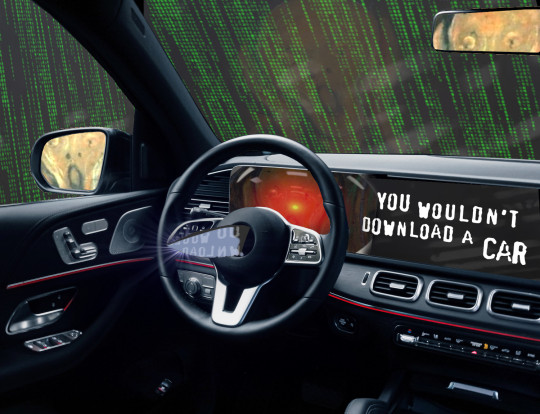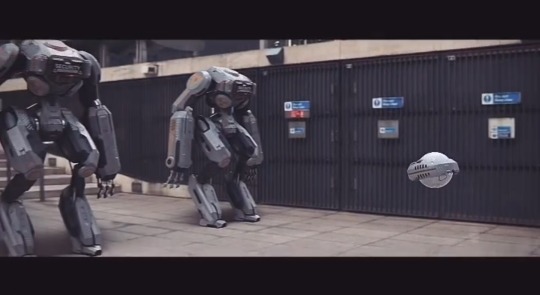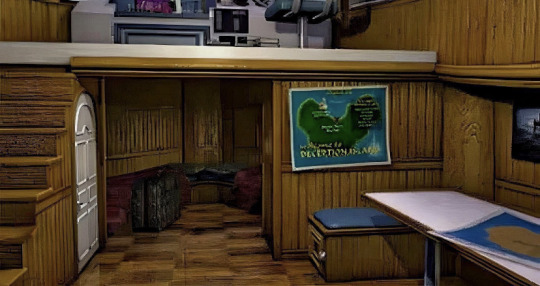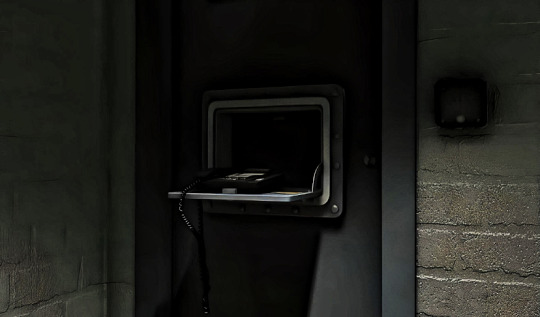#For the environment not the car ~
Text
Hand sanitizer + the engine reservoirs = an amazing pudding~
0 notes
Text
Rationing Insulin.

Blood sugar reading this morning. The average blood sugar reading should be between 60mg/dl - 100mg/dl. I am terrified of not being able to administer my insulin simply because I was too poor to afford it. I am strongly in need of community help.
CA: $HushEmu
I am happy to announce I raised $33 🎉 I only need $417 to get my prescription


#antiques#archaeology#artificial intelligence#biology#code#chemistry#college#computer science#classic car#conservation#entomology#environment#equestrian#etsy#ferrari#fishing#charity#geography#halloween#anthropology
1K notes
·
View notes
Text
Autoenshittification

Forget F1: the only car race that matters now is the race to turn your car into a digital extraction machine, a high-speed inkjet printer on wheels, stealing your private data as it picks your pocket. Your car’s digital infrastructure is a costly, dangerous nightmare — but for automakers in pursuit of postcapitalist utopia, it’s a dream they can’t give up on.
Your car is stuffed full of microchips, a fact the world came to appreciate after the pandemic struck and auto production ground to a halt due to chip shortages. Of course, that wasn’t the whole story: when the pandemic started, the automakers panicked and canceled their chip orders, only to immediately regret that decision and place new orders.
But it was too late: semiconductor production had taken a serious body-blow, and when Big Car placed its new chip orders, it went to the back of a long, slow-moving line. It was a catastrophic bungle: microchips are so integral to car production that a car is basically a computer network on wheels that you stick your fragile human body into and pray.
The car manufacturers got so desperate for chips that they started buying up washing machines for the microchips in them, extracting the chips and discarding the washing machines like some absurdo-dystopian cyberpunk walnut-shelling machine:
https://www.autoevolution.com/news/desperate-times-companies-buy-washing-machines-just-to-rip-out-the-chips-187033.html
These digital systems are a huge problem for the car companies. They are the underlying cause of a precipitous decline in car quality. From touch-based digital door-locks to networked sensors and cameras, every digital system in your car is a source of endless repair nightmares, costly recalls and cybersecurity vulnerabilities:
https://www.reuters.com/business/autos-transportation/quality-new-vehicles-us-declining-more-tech-use-study-shows-2023-06-22/
What’s more, drivers hate all the digital bullshit, from the janky touchscreens to the shitty, wildly insecure apps. Digital systems are drivers’ most significant point of dissatisfaction with the automakers’ products:
https://www.theverge.com/23801545/car-infotainment-customer-satisifaction-survey-jd-power
Even the automakers sorta-kinda admit that this is a problem. Back in 2020 when Massachusetts was having a Right-to-Repair ballot initiative, Big Car ran these unfuckingbelievable scare ads that basically said, “Your car spies on you so comprehensively that giving anyone else access to its systems will let murderers stalk you to your home and kill you:
https://pluralistic.net/2020/09/03/rip-david-graeber/#rolling-surveillance-platforms
But even amid all the complaining about cars getting stuck in the Internet of Shit, there’s still not much discussion of why the car-makers are making their products less attractive, less reliable, less safe, and less resilient by stuffing them full of microchips. Are car execs just the latest generation of rubes who’ve been suckered by Silicon Valley bullshit and convinced that apps are a magic path to profitability?
Nope. Car execs are sophisticated businesspeople, and they’re surfing capitalism’s latest — and last — hot trend: dismantling capitalism itself.
Now, leftists have been predicting the death of capitalism since The Communist Manifesto, but even Marx and Engels warned us not to get too frisky: capitalism, they wrote, is endlessly creative, constantly reinventing itself, re-emerging from each crisis in a new form that is perfectly adapted to the post-crisis reality:
https://www.nytimes.com/2022/10/31/books/review/a-spectre-haunting-china-mieville.html
But capitalism has finally run out of gas. In his forthcoming book, Techno Feudalism: What Killed Capitalism, Yanis Varoufakis proposes that capitalism has died — but it wasn’t replaced by socialism. Rather, capitalism has given way to feudalism:
https://www.penguin.co.uk/books/451795/technofeudalism-by-varoufakis-yanis/9781847927279
Under capitalism, capital is the prime mover. The people who own and mobilize capital — the capitalists — organize the economy and take the lion’s share of its returns. But it wasn’t always this way: for hundreds of years, European civilization was dominated by rents, not markets.
A “rent” is income that you get from owning something that other people need to produce value. Think of renting out a house you own: not only do you get paid when someone pays you to live there, you also get the benefit of rising property values, which are the result of the work that all the other homeowners, business owners, and residents do to make the neighborhood more valuable.
The first capitalists hated rent. They wanted to replace the “passive income” that landowners got from taxing their serfs’ harvest with active income from enclosing those lands and grazing sheep in order to get wool to feed to the new textile mills. They wanted active income — and lots of it.
Capitalist philosophers railed against rent. The “free market” of Adam Smith wasn’t a market that was free from regulation — it was a market free from rents. The reason Smith railed against monopolists is because he (correctly) understood that once a monopoly emerged, it would become a chokepoint through which a rentier could cream off the profits he considered the capitalist’s due:
https://locusmag.com/2021/03/cory-doctorow-free-markets/
Today, we live in a rentier’s paradise. People don’t aspire to create value — they aspire to capture it. In Survival of the Richest, Doug Rushkoff calls this “going meta”: don’t provide a service, just figure out a way to interpose yourself between the provider and the customer:
https://pluralistic.net/2022/09/13/collapse-porn/#collapse-porn
Don’t drive a cab, create Uber and extract value from every driver and rider. Better still: don’t found Uber, invest in Uber options and extract value from the people who invest in Uber. Even better, invest in derivatives of Uber options and extract value from people extracting value from people investing in Uber, who extract value from drivers and riders. Go meta.
This is your brain on the four-hour-work-week, passive income mind-virus. In Techno Feudalism, Varoufakis deftly describes how the new “Cloud Capital” has created a new generation of rentiers, and how they have become the richest, most powerful people in human history.
Shopping at Amazon is like visiting a bustling city center full of stores — but each of those stores’ owners has to pay the majority of every sale to a feudal landlord, Emperor Jeff Bezos, who also decides which goods they can sell and where they must appear on the shelves. Amazon is full of capitalists, but it is not a capitalist enterprise. It’s a feudal one:
https://pluralistic.net/2022/11/28/enshittification/#relentless-payola
This is the reason that automakers are willing to enshittify their products so comprehensively: they were one of the first industries to decouple rents from profits. Recall that the reason that Big Car needed billions in bailouts in 2008 is that they’d reinvented themselves as loan-sharks who incidentally made cars, lending money to car-buyers and then “securitizing” the loans so they could be traded in the capital markets.
Even though this strategy brought the car companies to the brink of ruin, it paid off in the long run. The car makers got billions in public money, paid their execs massive bonuses, gave billions to shareholders in buybacks and dividends, smashed their unions, fucked their pensioned workers, and shipped jobs anywhere they could pollute and murder their workforce with impunity.
Car companies are on the forefront of postcapitalism, and they understand that digital is the key to rent-extraction. Remember when BMW announced that it was going to rent you the seatwarmer in your own fucking car?
https://pluralistic.net/2020/07/02/big-river/#beemers
Not to be outdone, Mercedes announced that they were going to rent you your car’s accelerator pedal, charging an extra $1200/year to unlock a fully functional acceleration curve:
https://www.theverge.com/2022/11/23/23474969/mercedes-car-subscription-faster-acceleration-feature-price
This is the urinary tract infection business model: without digitization, all your car’s value flowed in a healthy stream. But once the car-makers add semiconductors, each one of those features comes out in a painful, burning dribble, with every button on that fakakta touchscreen wired directly into your credit-card.
But it’s just for starters. Computers are malleable. The only computer we know how to make is the Turing Complete Von Neumann Machine, which can run every program we know how to write. Once they add networked computers to your car, the Car Lords can endlessly twiddle the knobs on the back end, finding new ways to extract value from you:
https://doctorow.medium.com/twiddler-1b5c9690cce6
That means that your car can track your every movement, and sell your location data to anyone and everyone, from marketers to bounty-hunters looking to collect fees for tracking down people who travel out of state for abortions to cops to foreign spies:
https://www.vice.com/en/article/n7enex/tool-shows-if-car-selling-data-privacy4cars-vehicle-privacy-report
Digitization supercharges financialization. It lets car-makers offer subprime auto-loans to desperate, poor people and then killswitch their cars if they miss a payment:
https://www.youtube.com/watch?v=4U2eDJnwz_s
Subprime lending for cars would be a terrible business without computers, but digitization makes it a great source of feudal rents. Car dealers can originate loans to people with teaser rates that quickly blow up into payments the dealer knows their customer can’t afford. Then they repo the car and sell it to another desperate person, and another, and another:
https://pluralistic.net/2022/07/27/boricua/#looking-for-the-joke-with-a-microscope
Digitization also opens up more exotic options. Some subprime cars have secondary control systems wired into their entertainment system: miss a payment and your car radio flips to full volume and bellows an unstoppable, unmutable stream of threats. Tesla does one better: your car will lock and immobilize itself, then blare its horn and back out of its parking spot when the repo man arrives:
https://tiremeetsroad.com/2021/03/18/tesla-allegedly-remotely-unlocks-model-3-owners-car-uses-smart-summon-to-help-repo-agent/
Digital feudalism hasn’t stopped innovating — it’s just stopped innovating good things. The digital device is an endless source of sadistic novelties, like the cellphones that disable your most-used app the first day you’re late on a payment, then work their way down the other apps you rely on for every day you’re late:
https://restofworld.org/2021/loans-that-hijack-your-phone-are-coming-to-india/
Usurers have always relied on this kind of imaginative intimidation. The loan-shark’s arm-breaker knows you’re never going to get off the hook; his goal is in intimidating you into paying his boss first, liquidating your house and your kid’s college fund and your wedding ring before you default and he throws you off a building.
Thanks to the malleability of computerized systems, digital arm-breakers have an endless array of options they can deploy to motivate you into paying them first, no matter what it costs you:
https://pluralistic.net/2021/04/02/innovation-unlocks-markets/#digital-arm-breakers
Car-makers are trailblazers in imaginative rent-extraction. Take VIN-locking: this is the practice of adding cheap microchips to engine components that communicate with the car’s overall network. After a new part is installed in your car, your car’s computer does a complex cryptographic handshake with the part that requires an unlock code provided by an authorized technician. If the code isn’t entered, the car refuses to use that part.
VIN-locking has exploded in popularity. It’s in your iPhone, preventing you from using refurb or third-party replacement parts:
https://doctorow.medium.com/apples-cement-overshoes-329856288d13
It’s in fuckin’ ventilators, which was a nightmare during lockdown as hospital techs nursed their precious ventilators along by swapping parts from dead systems into serviceable ones:
https://www.vice.com/en/article/3azv9b/why-repair-techs-are-hacking-ventilators-with-diy-dongles-from-poland
And of course, it’s in tractors, along with other forms of remote killswitch. Remember that feelgood story about John Deere bricking the looted Ukrainian tractors whose snitch-chips showed they’d been relocated to Russia?
https://doctorow.medium.com/about-those-kill-switched-ukrainian-tractors-bc93f471b9c8
That wasn’t a happy story — it was a cautionary tale. After all, John Deere now controls the majority of the world’s agricultural future, and they’ve boobytrapped those ubiquitous tractors with killswitches that can be activated by anyone who hacks, takes over, or suborns Deere or its dealerships.
Control over repair isn’t limited to gouging customers on parts and service. When a company gets to decide whether your device can be fixed, it can fuck you over in all kinds of ways. Back in 2019, Tim Apple told his shareholders to expect lower revenues because people were opting to fix their phones rather than replace them:
https://www.apple.com/newsroom/2019/01/letter-from-tim-cook-to-apple-investors/
By usurping your right to decide who fixes your phone, Apple gets to decide whether you can fix it, or whether you must replace it. Problem solved — and not just for Apple, but for car makers, tractor makers, ventilator makers and more. Apple leads on this, even ahead of Big Car, pioneering a “recycling” program that sees trade-in phones shredded so they can’t possibly be diverted from an e-waste dump and mined for parts:
https://www.vice.com/en/article/yp73jw/apple-recycling-iphones-macbooks
John Deere isn’t sleeping on this. They’ve come up with a valuable treasure they extract when they win the Right-to-Repair: Deere singles out farmers who complain about its policies and refuses to repair their tractors, stranding them with six-figure, two-ton paperweight:
https://pluralistic.net/2022/05/31/dealers-choice/#be-a-shame-if-something-were-to-happen-to-it
The repair wars are just a skirmish in a vast, invisible fight that’s been waged for decades: the War On General-Purpose Computing, where tech companies use the law to make it illegal for you to reconfigure your devices so they serve you, rather than their shareholders:
https://memex.craphound.com/2012/01/10/lockdown-the-coming-war-on-general-purpose-computing/
The force behind this army is vast and grows larger every day. General purpose computers are antithetical to technofeudalism — all the rents extracted by technofeudalists would go away if others (tinkereres, co-ops, even capitalists!) were allowed to reconfigure our devices so they serve us.
You’ve probably noticed the skirmishes with inkjet printer makers, who can only force you to buy their ink at 20,000% markups if they can stop you from deciding how your printer is configured:
https://pluralistic.net/2022/08/07/inky-wretches/#epson-salty
But we’re also fighting against insulin pump makers, who want to turn people with diabetes into walking inkjet printers:
https://pluralistic.net/2022/06/10/loopers/#hp-ification
And companies that make powered wheelchairs:
https://pluralistic.net/2022/06/08/chair-ish/#r2r
These companies start with people who have the least agency and social power and wreck their lives, then work their way up the privilege gradient, coming for everyone else. It’s called the “shitty technology adoption curve”:
https://pluralistic.net/2022/08/21/great-taylors-ghost/#solidarity-or-bust
Technofeudalism is the public-private-partnership from hell, emerging from a combination of state and private action. On the one hand, bailing out bankers and big business (rather than workers) after the 2008 crash and the covid lockdown decoupled income from profits. Companies spent billions more than they earned were still wildly profitable, thanks to those public funds.
But there’s also a policy dimension here. Some of those rentiers’ billions were mobilized to both deconstruct antitrust law (allowing bigger and bigger companies and cartels) and to expand “IP” law, turning “IP” into a toolsuite for controlling the conduct of a firm’s competitors, critics and customers:
https://locusmag.com/2020/09/cory-doctorow-ip/
IP is key to understanding the rise of technofeudalism. The same malleability that allows companies to “twiddle” the knobs on their services and keep us on the hook as they reel us in would hypothetically allow us to countertwiddle, seizing the means of computation:
https://pluralistic.net/2023/04/12/algorithmic-wage-discrimination/#fishers-of-men
The thing that stands between you and an alternative app store, an interoperable social media network that you can escape to while continuing to message the friends you left behind, or a car that anyone can fix or unlock features for is IP, not technology. Under capitalism, that technology would already exist, because capitalists have no loyalty to one another and view each other’s margins as their own opportunities.
But under technofeudalism, control comes from rents (owning things), not profits (selling things). The capitalist who wants to participate in your iPhone’s “ecosystem” has to make apps and submit them to Apple, along with 30% of their lifetime revenues — they don’t get to sell you jailbreaking kit that lets you choose their app store.
Rent-seeking technology has a holy grail: control over “ring zero” — the ability to compel you to configure your computer to a feudalist’s specifications, and to verify that you haven’t altered your computer after it came into your possession:
https://pluralistic.net/2022/01/30/ring-minus-one/#drm-political-economy
For more than two decades, various would-be feudal lords and their court sorcerers have been pitching ways of doing this, of varying degrees of outlandishness.
At core, here’s what they envision: inside your computer, they will nest another computer, one that is designed to run a very simple set of programs, none of which can be altered once it leaves the factory. This computer — either a whole separate chip called a “Trusted Platform Module” or a region of your main processor called a secure enclave — can tally observations about your computer: which operating system, modules and programs it’s running.
Then it can cryptographically “sign” these observations, proving that they were made by a secure chip and not by something you could have modified. Then you can send this signed “attestation” to someone else, who can use it to determine how your computer is configured and thus whether to trust it. This is called “remote attestation.”
There are some cool things you can do with remote attestation: for example, two strangers playing a networked video game together can use attestations to make sure neither is running any cheat modules. Or you could require your cloud computing provider to use attestations that they aren’t stealing your data from the server you’re renting. Or if you suspect that your computer has been infected with malware, you can connect to someone else and send them an attestation that they can use to figure out whether you should trust it.
Today, there’s a cool remote attestation technology called “PrivacyPass” that replaces CAPTCHAs by having you prove to your own device that you are a human. When a server wants to make sure you’re a person, it sends a random number to your device, which signs that number along with its promise that it is acting on behalf of a human being, and sends it back. CAPTCHAs are all kinds of bad — bad for accessibility and privacy — and this is really great.
But the billions that have been thrown at remote attestation over the decades is only incidentally about solving CAPTCHAs or verifying your cloud server. The holy grail here is being able to make sure that you’re not running an ad-blocker. It’s being able to remotely verify that you haven’t disabled the bossware your employer requires. It’s the power to block someone from opening an Office365 doc with LibreOffice. It’s your boss’s ability to ensure that you haven’t modified your messaging client to disable disappearing messages before he sends you an auto-destructing memo ordering you to break the law.
And there’s a new remote attestation technology making the rounds: Google’s Web Environment Integrity, which will leverage Google’s dominance over browsers to allow websites to block users who run ad-blockers:
https://github.com/RupertBenWiser/Web-Environment-Integrity
There’s plenty else WEI can do (it would make detecting ad-fraud much easier), but for every legitimate use, there are a hundred ways this could be abused. It’s a technology purpose-built to allow rent extraction by stripping us of our right to technological self-determination.
Releasing a technology like this into a world where companies are willing to make their products less reliable, less attractive, less safe and less resilient in pursuit of rents is incredibly reckless and shortsighted. You want unauthorized bread? This is how you get Unauthorized Bread:
https://arstechnica.com/gaming/2020/01/unauthorized-bread-a-near-future-tale-of-refugees-and-sinister-iot-appliances/amp/

If you'd like an essay-formatted version of this thread to read or share, here's a link to it on pluralistic.net, my surveillance-free, ad-free, tracker-free blog:
https://pluralistic.net/2023/07/24/rent-to-pwn/#kitt-is-a-demon

[Image ID: The interior of a luxury car. There is a dagger protruding from the steering wheel. The entertainment console has been replaced by the text 'You wouldn't download a car,' in MPAA scare-ad font. Outside of the windscreen looms the Matrix waterfall effect. Visible in the rear- and side-view mirror is the driver: the figure from Munch's 'Scream.' The screen behind the steering-wheel has been replaced by the menacing red eye of HAL9000 from Stanley Kubrick's '2001: A Space Odyssey.']

Image:
Cryteria (modified)
https://commons.wikimedia.org/wiki/File:HAL9000.svg
CC BY 3.0
https://creativecommons.org/licenses/by/3.0/deed.en
#pluralistic#shitty technology adoption curve#unauthorized bread#automotive#arm-breakers#cars#big car#right to repair#rent-seeking#digital feudalism#neofeudalism#drm#wei#remote attestation#private access tokens#yannis varoufakis#web environment integrity#paternalism#war on general purpose computing#competitive compatibility#google#enshittification#interoperability#adversarial interoperability#comcom#the internet con#postcapitalism#ring zero#care#med-tech
4K notes
·
View notes
Text
I’m reading a book on the history of invention and how our cultural views of masculinity vs femininity affect our progress and holy shit if women’s needs and preferences were taken seriously we would’ve been using electric cars since the late 1800s instead of just starting to use them now.
In “Att uppfinna världen” (Mother of Invention in the English translation) by Katrine Marçal there is a chapter dedicated to the process of inventing the modern automobile, where I read that there were multiple ways of constructing a car when the invention was relatively recent, as the field was still open to experimentation. Petrol wasn’t an obvious choice for fuelling the engine – in fact, around the year 1900 a third of all cars in Europe were electric cars, and the percentage was even bigger in America. Electrically powered cars were superior to petrol-fuelled ones in many ways: they were quieter, didn’t expel smelly gas, much safer and more reliable, and easy to start and control from the driver’s seat. Cars fuelled by petrol, on the other hand, were loud, more unreliable and required a lot more maintenance, and to start the engine one had to do some serious manual labour involving a crank – which would often leave you sweaty and with oil stains on your clothes, plus a constant risk of causing an explosion if you weren’t careful enough. Naturally, women preferred the former, being more convenient and comfortable and thus more suited to their travel needs, whereas the petrol-fuelled car was marketed as the more adventurous, macho choice for men.
The one downside to electric cars was that the battery didn’t last for longer journeys, which in the case for women wasn’t that much of a problem since the majority mainly just made trips within the city or town. This was also an issue that could’ve been fixed, and there were many plans to do so, mainly infrastructure-related ones like battery-switching stations and developing better battery solutions. There were even plans for a net of rentable electric cars for anyone to use, and electric trains, trams, and taxis for public transport (seems very ahead of its time, doesn’t it? A much more environmentally conscious system than our good ol’ “everyone has one or multiple cars that individually expel copious amounts of greenhouse gasses” method). However, investments were too few since the male-dominated society deemed these “women’s cars”. After all, a real man isn’t soft, safe and comfortable – he cranks his own car to life and makes a lot of noise as he travels. A report from 1916 by the magazine Electric Vehicle stated that “The thing that is effeminate, or that has that reputation, does not find favor with the American man. Whether or not he is ‘red-blooded’ or ‘virile’ in the ordinary physical sense, at least his ideals are. The fact that anything from a car to a color is the delight of the ladies is enough to change his interest to mere amused tolerance.”
Like, it’s insane that values such as comfort, safety and convenience were seen as “feminine” and thus dismissed, leading to petrol-fuelled cars completely taking over the market in the end. Imagine what the world would’ve looked like if women were the standard instead of men. It really pains me to think how much damage we’ve done to the planet just because of men’s stubborn macho ideals.
(a lot of this research is quoted from The Electric Vehicle: Technology and Expectations in the Automobile Age by Gijs Mom, a book I’m now very interested in reading in full)
#feminism#radical feminism#climate change#environment#radfem#electric cars#fun fact is that eventually some of these aspects (such as comfort) were developed in petrol cars as well#but by then they were already dominating the market and there was no chance people would make the switch back to electric
3K notes
·
View notes
Text
I know my experience is not universal, but I biked 5+ miles to do my errands today and I genuinely think we'd be much happier as a human collective if we increased residential density and switched to largely alternative modes of transportation.
#I don't know /how/ you'd do it exactly but this is my vision:#all cars are kept outside a certain perimeter. you can own a car and rent your outside-the-city parking spot;#or you can just reserve/rent a communally owned car when you need one#trucks and deliveries can cross the perimeter on a job but after the work is finished they must be returned to the exterior#inside the city perimeter you can: walk or run; bike or scooter or skateboard#or you can take public transit! there are many more buses and they can move much more freely in a car-less environment#there is also the option of cabs but - and this is key - the cabbies are unionized and the service is public#like the trains and buses.#there is no privately-controlled transit in the city. it belongs to everyone.#and because the lines of parked cars disappear from the streets; they are much better utilized#more kids play in the street. more block parties. more street fairs.#take back the space!!!#anyway this is my vision.#celestial emporium of benevolent knowledge
309 notes
·
View notes
Text

Link: If I think nobody remembers me, I know the 46 yiga clan members in my area do.
#TOTK#LINK#kohga#master kohga#GLORY TO MASTER KOHGA#yiga clan#botw#zelda#totk story spoilers#totk depths#i love the yiga clan so much#they’re just a bunch of funky little dudes on a field trip!#also they allow women to join so they aren’t sexist#very progressive 10/10 healthy workplace environment#concerned about the banana addiction though#plus they’re building entrepreneur skills by building cars and talking to people
564 notes
·
View notes
Text










By John Seru
#nestedneons#cyberpunk#cyberpunk art#cyberpunk aesthetic#cyberpunk artist#art#cyberwave#megacity#futuristic city#scifi#scifi art#scifi car#scifi vehicle#scifi design#scifi environment#scifi geek#robot#bot#cyborg#mecha#crazy mecha
216 notes
·
View notes
Text
i. there's this phrase: bloom where you are planted.
ii. something i should maybe talk to my therapist about is that all of my daydreams involve me helping people. when i picture meeting celebrities, i'm usually just suggesting therapy to them. there's just not a lot left for me to get out of this world, i feel like - like with this time left i might as well use it for kindness.
iii. according to the gardening map, i was raised in Zone 6 of plant hardiness. i think that's kind of funny. i am good with plants, and keep too-many of them. i learned young about the colors of hydrangeas - how you cant tell the pH of the soil by it.
iv. they tore down both of the schools i attended as a kid. most of the forests we walked in have been turned into apartment complexes. there's nothing really left of the places i've been.
v. tumbleweeds are liminal things - they are carcasses that carry their seeds along with them. a plant that evolved to move. we have so much to learn about nature, and the way that happenstance creates miracles. can you imagine the beauty of that? i think so often about how the roots of a tree often take up the same shape and circumference of its branches. i think so much about carnivorous plants; those that eat with no stomach. about where plants store their "knowledge."
vi. i'm not going to write about who i was or what i did to myself before i left. only three things, which will make sense if you are the type of person i buried in that ditch. the first is that i ended up getting tattoos to cover it. the second is that setting boundaries still makes me uneasy. and the third is that i am constantly shocked at the fact i have actually made it to the place where i'm happy.
vii. there's this ongoing joke amongst those of us who keep plants: you don't really get a say in whether or not the plant wants to be dead. i'm excellent at orchids, but i kill every ivy i've ever met. i have been rotating one particular rescue plant around my apartment, trying to figure out what exactly is the right amount of sun for it. the truth is that sometimes things will never survive being kept.
viii. i used to daydream about joining the circus. about an alien abduction. i used to picture meeting celebrities and whispering please fucking get me out of this. did you know the quote originally came from a bishop? when i googled it, google told me the meaning is don't take what you have for granted. make the most of what you are given.
ix. sometimes i think about my 17 year old self. it's been happening a lot lately. i keep watching her through my memories, how she clawed herself raw, scratching at the walls. we got out, is the thing. i know we thought about staying. but oh, fuck dude: we could have never bloomed if we'd stayed planted.
#is this anything?#warm up#plants#fussy orchids that hate all environments: we love u miss raquel#''hardy'' ivy that has like 12 ''u can't kill this one!!!'' notes attached to it:#i hate u and i am GOING to die now#is this bc i saw this quote on the back of a car? yeah
1K notes
·
View notes
Text

566 notes
·
View notes
Text
Rooms Nancy has slept in-
but it goes from motel to Airbnb to YOU SLEPT WHERE??



















#nancy drew games#nd locations#how has Nancy managed to get into these situations#I know it’s video game magic or whatever#but like#canonically#she’s like… cursed right?#like cursed to never stop solving…#like immortality with an asterisk#* but you have to solve crime and be stuck in a temporal loop for all eternity#but your friends get to join!#clue crew#video game environments#ssh#car#wac#ded#trt#ddi#saw#ice#ash#mhm#spy#cap#ven#cur#tmb#gth#hau
390 notes
·
View notes
Photo

596 notes
·
View notes
Text

Trading with the Takeda gang by Fernando Correa
61 notes
·
View notes
Note
have you heard about this new, potentially recyclable batteries made using crab shells? it isnt perfected yet, but it could potentially make renewable energy even MORE renewable, because it wont need to be stored in lithium batteries
Hi Shawn! Well this is awesome--thank for sending this in!
Very basic synopsis of the technical bits: Zinc ion batteries have a lot of advantages over lithium ion batteries, but over time the zinc ions produce "dendrites" that significantly reduce the efficiency and longevity of the battery. Researchers tried using a compound found in crustacean exoskeletons to stabilize the zinc, and the result outperformed any existing zinc batteries.
The materials used for zinc batteries are far more sustainable and recyclable than those used in lithium batteries, so if this advance allows zinc batteries to replace some or all uses of lithium batteries that would be a huge win!
"Hu and his team hope their new development can lead to a battery that can be completely degraded or recycled—so that renewable energy sources like solar and wind can produce power that doesn’t require unsustainable processes to store. If the goal is to one day eliminate pollution, this battery is a step (or scuttle) in the right direction."
#batteries#sustainable energy#green power#green energy#electric cars#technology#ask#submission#biomimicry#hope#good news#lithium ion#zinc batteries#climate change#environment#global warming
1K notes
·
View notes
Text
Help! My Mother-In-Law Buys A New Outfit Every Time She Pours Jet Fuel on Chilean Sea Bass and Throws Their Carcasses, Flaming, Into the Rainforests from the Open Belly of Her Private Plane
Care and Feeding, Slate, 1 May 2023:
Dear Care and Feeding,
My husband and I have two children (2 years and 6 months). We recently moved back to my husband’s hometown to pursue a career opportunity for me. My husband has been home with the kids but was just offered a job. We found a daycare, but it can only take the kids three days a week right now (we’re on waitlists for full-time, but it seems like it could be months or more before we find two full-time spots). My mother-in-law has generously offered to watch the kids for the other two days. Overall, she is a lovely, responsible woman, but we have some significant value differences around environmental issues and I’m not sure how to navigate them.
Our household focuses heavily on environmental awareness. We drive electric cars, we compost, we limit our air conditioning, we limit our flying, we eat all leftovers, we avoid plastics whenever possible, and we buy exclusively secondhand clothing. My mother-in-law is a big fan of consumption. Her house is full of plastics. She throws away whatever is left on her plate at the end of a meal, she keeps her house so cold in the summer that I need a sweater and she drives a minivan. I’m concerned about the message it sends to the kids if we stick to our values, except when to do so would be inconvenient. How do I bridge our two very different lifestyles going forward? —Environmentalist Mama in Limbo
Dear Environmentalist Mama,
I'm not sure how you can describe a person who air-conditions her home and drives a minivan as "lovely" and "responsible" but I will assume that this planet-hating harpy has gripped you so tightly in her environmentally irresponsible talons that you cannot see the wildfire-ridden forest for the trees (which she is personally cutting down for fun and profit). Do not let yourself be hoodwinked by promises of familial love and generous offers of free child care, as if these things matter more than assiduously composting! This woman is a monster who is single-handedly destroying the only earth your precious babies have to live on. Imagine the tragedies that will unfold if your children experience a loving connection with a person who purchases items made of plastic? They could come to believe that other humans are whole people with their own interior lives and decision-making apparatuses and values instead of ugly nasty baddies who dare to oppose Mommy's One True And Only Way?
You simply cannot bridge two lifestyles as different as the two you describe here. On the one hand, we have your blameless and perfect eco-conscious little household of brave, Dumpster-diving Oliver Twists, and on the other hand, we have an ethically compromised, unscrupulous, indefensibly ignorant shitbird who probably barbecues her factory-farmed meats over asbestos tiles and flies to Australia to distribute the ashes over the Great Barrier Reef. If Planet Earth does not spin out into an apocalyptic ball of climate disaster by the time your children are old enough to be knifing their peers over tire fires for their share of rat rations, it will be because your uniquely virtuous family had the moral fortitude to drive an electric car and limit your flying. After all, electricity comes from magical climate-neutral fairies and the jet fuel industry is waiting with bated breath for the day that you ground your family and send an international behemoth into wholesale free-fall.
If there is one guaranteed way forward through the climate crisis, it is to silo ourselves into individual categories of "good people" who use paper straws (like you! you are so good!) and "amoral reprobates" (such as your mother-in-law, who sucks!) who do not. The very future of humanity depends on demonizing and shaming other people until they behave as we want them to, privileging individual actions over collective resistance to and accountability for the worst global offenders, and rejecting community-building opportunities in favor of being the only best good person ever.
Build no bridge with this woman! She would probably just drive over it with her minivan, and then the blood of billions will be on your hands.
#advice#bad advice#care and feeding#slate#environment#climate change#climate crisis#parenting#mothers-in-law#in-laws#family advice#paper straws#electric cars#great barrier reef#we're all fucked
188 notes
·
View notes
Photo


Still trying to learn to paint more developed scenes, here’s one with an artist at work
#szczecin baby i love you i miss you#environment art#visual development#landscape painting#Illustration#visdev#colors#digital#digital art#digital painting#cars#my art#mostrovska
1K notes
·
View notes
Text
The story of car bloat—the continually expanding size of the typical American automobile—is one of carmaker profit, shifting consumer preferences, and loophole-riddled auto regulations. It is also a story of hidden costs: to the planet, to taxpayers, and to the American families whose lives have been shattered by a crash that could have been avoided, or at least mitigated, with a smaller vehicle.
How Cars Turned Into Giant Killers
64 notes
·
View notes